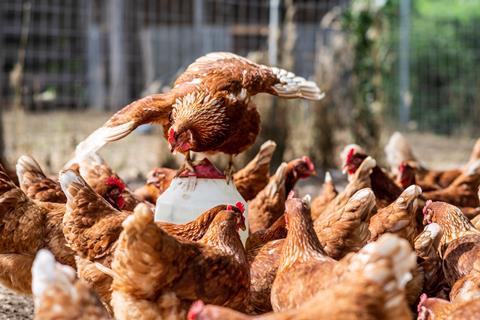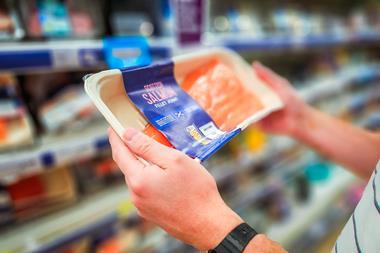
Iceland has revived plans to ditch caged eggs under pressure from animal welfare campaigners.
The supermarket will now transition entirely to cage-free eggs by June 2027. The U-turn comes after Iceland reneged on its previous 2025 target in May, citing supply chain disruption and the cost of living crisis.
Aldi, M&S, Waitrose, Sainsbury’s and Morrisons have already transitioned to fully cage-free eggs across their whole egg offers, with all other supermarkets committing to reaching this target by the end of the year.
Iceland said the new decision built on the recent launch of its RSPCA Assured barn egg pilot across 35 stores, which expanded the range of welfare options available, including existing free-range lines.
“We’ve always been honest about the challenge of balancing improved animal welfare with the urgent need to help families through the cost of living crisis,” said Stuart Lendrum, director of product, process and sustainability at Iceland Foods. “That’s why we never stopped offering free-range eggs, and why we introduced barn eggs as an affordable additional higher welfare option.”
The new 2027 timetable reflects the supermarket’s “long-term goal to offer only cage-free eggs while protecting access to quality food for families”.
Lendrum explained that Iceland had worked with its suppliers and the new goal was “the right route to protect both affordable choice and welfare and reflects our ‘Doing it Right’ commitment”.
Iceland is currently the fourth largest retailer of caged eggs in the UK. Sales of these products had declined by almost 15% in the past year, it said.
The transition to 2027 will be supported by the rollout of an affordable higher-welfare barn egg option to all Iceland stores by January 2026.
Iceland had been heavily criticised by animal rights campaigners over the decision to cancel its commitment, with The Humane League describing it as “phenomenally short-sighted” in May.
“After breaking their original promise to stop keeping hens in cruel cages by 2025, Iceland is finally doing the right thing,” said Sean Gifford, managing director at The Humane League UK. ”Of course, we’d rather they move faster than 2027. But we welcome their renewed commitment and thank all those who took action to make this happen.
”Mark our words: we’ll be holding Iceland to this promise, and making sure no hen is left behind.”
The move has also been welcomed by the RSPCA, but the charity also said it was ”disappointing to see that this timeline has been pushed back after the retailer originally committed to making this vital step for animal welfare this year”.
“The majority of retailers have either fully transitioned to cage-free or retain their commitment to do so by the end of this year which means that Iceland may very well stand alone as a retailer which still sells eggs from caged hens,” said a spokesperson for the charity. ”As a result, they may even find it difficult to source eggs from caged hens as the demand diminishes across the supermarket sector.”
The RSPCA has called for supermarkets to adopt commitments beyond just shell eggs into their wider supply base including cakes to ensure higher animal welfare.



















No comments yet